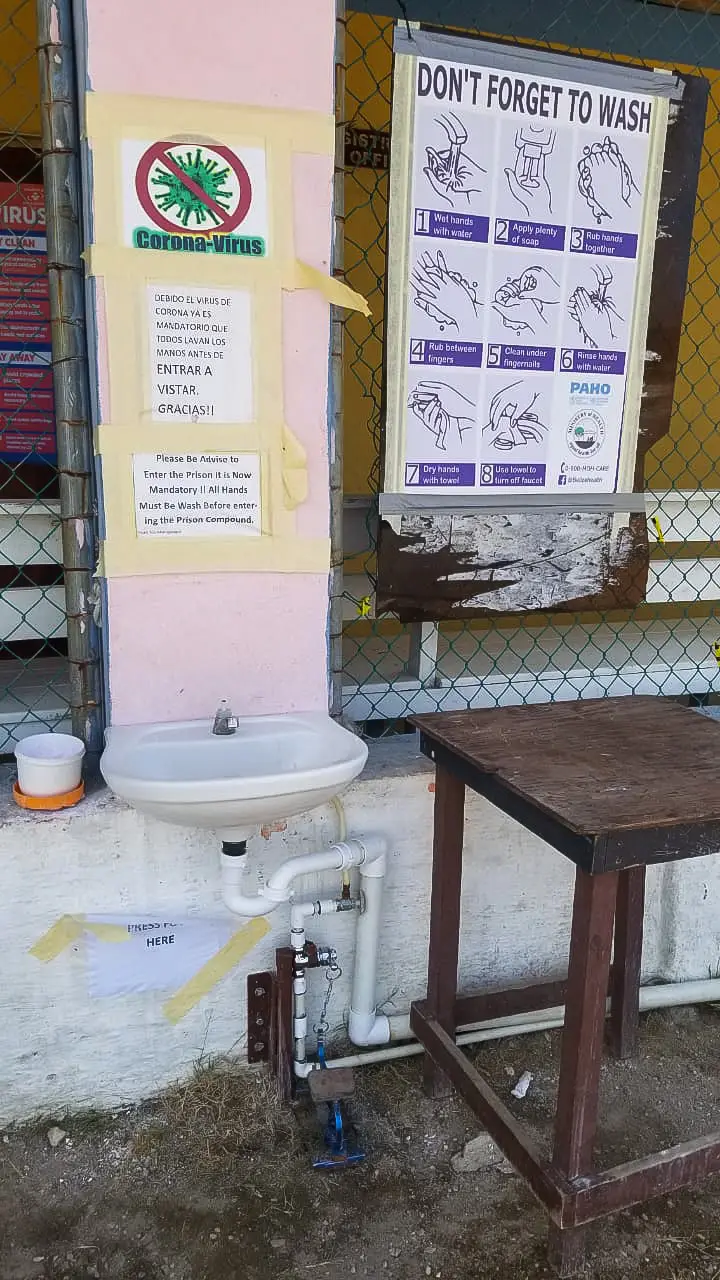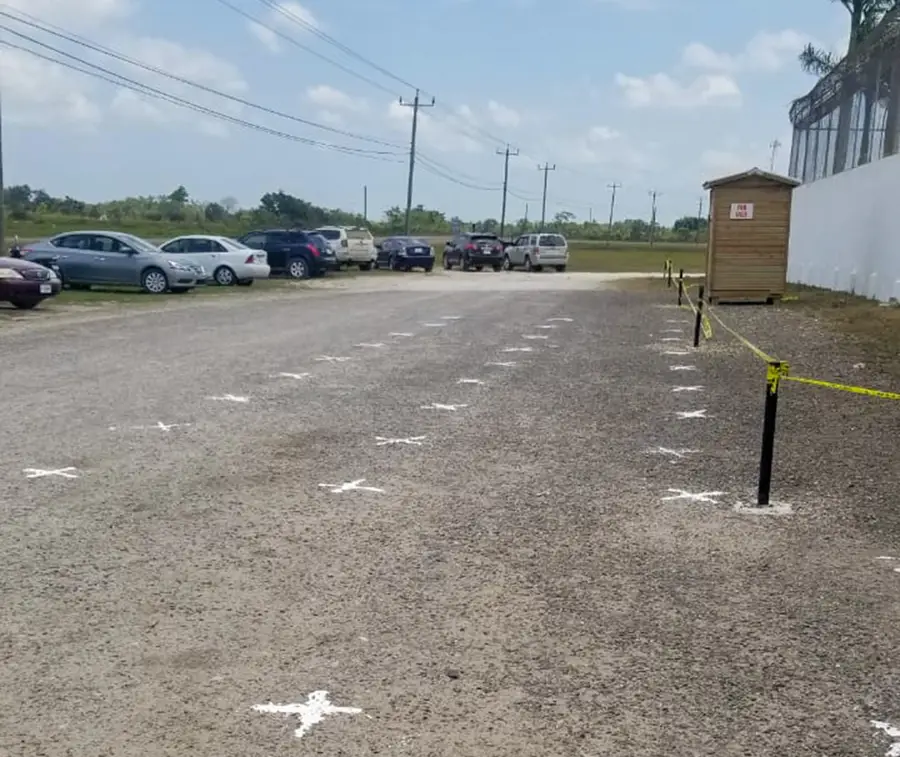
Prison Health is Public Health
As the entire world grapples with the effects of COVID-19, prisons, jails, and other detention facilities may not be the first among the concerns that the public considers. Yet, these institutions allow us to consider the management of the outbreak from a micro-societal viewpoint that could offer important mitigation strategies for other settings.
Why are prisons epicenters of concern when it comes to COVID-19? We know that prisoners often reflect the disparities in social health affecting groups that are disproportionately likely to be incarcerated. Racial minorities, persons with substance abuse and/or mental health disorders, persons living in poverty are also more likely to have comorbid health concerns (e.g., diabetes, hypertension, heart diseases). Other illnesses such as tuberculosis and Hepatitis-C, which are more common amongst prisoners, exacerbate complications due to COVID-19 infections and are also significant comorbid factors. Some researchers have argued that “multimorbidity” is common among the prison population, which may cause earlier onset and greater severity than illnesses in the general population[1].
In prison settings, communicable diseases have the potential to be transmitted between prisoners, by staff and visitors, between prisons through transfers, and staff cross-deployment to and from the community. COVID-19 outbreaks in custodial settings are especially important for public health because an outbreak could quickly overwhelm prison health-care services. Furthermore, prisons are a vector for community transmission that will disproportionately impact marginalized communities. In other words, released prisoners and inmate visitors could impact the most vulnerable communities by carrying the infections back home. Controlling communicable infections and other public health concerns such as COVID-19, HIV and Hepatitis C, in correctional settings can have positive effects both in these settings and on surrounding communities.
Good news from Belize
RTI has had a special opportunity to observe the response to the COVID-19 pandemic in Belize, including in the prison system. In 2017, the U.S. Embassy in Belmopan engaged us to help with a governance project based on access to reliable, open-source data. The project, a partnership with the Belize Association of Planners, aims to strengthen civil society, improve government service delivery, and support democracy and security.
We contacted the Kolbe Foundation, a nonprofit, non-governmental organization that has managed the Belize Central Prison in Hattiesville since 2002. With their permission, we developed a short summary to underscore the importance of prison health to the Belizean community and to highlight the successful planning and intervention strategies implemented to protect these populations.
Located about 20 miles outside of Belize City, the Belize Central Prison is the only secure detention facility in the country. The sprawling complex includes the multiple adult housing units, the Addiction Rehabilitation Center (ARC), and Wagner's Youth Facility. In early July 2020, the Belize prison had a population of 1,222 individuals which included 34 females and 29 juveniles. Because the facility took important steps to prepare for the crisis, the prison has not had any COVID-19 cases.
While the first Covid-19 diagnosis in the U.S. involving a detained person was announced on March 16, 2020, the rest of the world had already been busy addressing issues regarding populations in detention. Iran, for example, temporarily released 70,000 prisoners serving sentences of less than five years to reduce in-custody transmission[3]. During Italy’s well documented crisis, failure to calm incarcerated populations led to widespread rioting. Similarly, countries worldwide rushed to implement mitigating strategies.
The Kolbe Foundation released a plan to help prevent the introduction of the virus to the facility on March 13. Developed and approved by the Prison Director, Medical Officer, and the Chief of Security, the plan established clear guidelines regarding access restrictions, isolation protocols, and daily sanitation recommendations. Ten days later, after the first Belizean case of COVID-19 was confirmed, the prison issued an updated plan with additional screening practices, including checking temperatures of all persons entering the facility. The plan also documented changes in prison programming and recreational activities to reflect social distancing guidelines. Importantly, the prison administration also reiterated and demonstrated a strong commitment to promoting hygiene and health orientation information and public health awareness among prisoners and the outside community through the posting of fliers and broadcasts from the Jeremiah Radio Station, an independent radio station operated by the facility.

Detailed Strategies on Visitation, Staffing, and PPE
The Belize Central Prison has one medical doctor and two nurse aids available to serve the entire prison population. To reduce demand on these limited resources, the medical staff have trained a “Medic Man” in each building to distribute medications, provide general first aid, and triage cases requiring higher level attention. There are strict visitation restrictions and no outside visitors have been allowed to visit face-to-face for several weeks, though inmates may see visitors by telephone. The prison has implemented an isolation procedure for all new intakes into the facility with Belizeans held in quarantine for 15 days and foreigners being separated for 21 days. All staff are provided face masks and required to wear them.
Ordinarily, the staff work seven days on and seven days off. When public transportation was suspended, staff were encouraged to remain on site and while some did, others had family and work responsibilities that required them to go home. Because of the lack of public transport, some staff were not able to report for work. The prison administration arranged for a private transport service to travel as far away as Punta Gorda (3.5 hours or 250KM) to pick up staff and take them to and from work.
The Caribbean Community Implementation Agency for Citizen Security (CARICOM IMPACS) donated BZD$15,000 in supplies to the Belize Central Prison to support the response to COVID-19. The prison promotes vocational opportunities for development including wood working and furniture making and agricultural activities. During COVID, the demand for some of these products has waned and instead, the prison inmates began creating cloth face masks for sale to the public. So far, inmates have produced more than 30,000 masks.
Finally, the Belize Central Prison from the beginning of the COVID-19 crisis recognized the importance of clear communication. The inmates have access to information about the outside and the COVID-19 impacts. Simulcasted radio shows from Belize City keep the population abreast of outside events. Additionally, the prison administration posts public health information in strategic locations to help inmates know how to protect themselves from the virus. This helps to reduce inmate stress and enable better management of the population.
Care – Custody – Control
In a recent interview, Belize prison director Virgilio Murillo asserted that the role of prison administration is, “to ensure care, custody, and control of the people in our facility.”
- Care – provide humane treatment, medical services, and promote rehabilitation
- Custody – protect inmates from harm from others and themselves
- Control – prevent escapes, maintain order, and reduce disruptions
The Belize Central Prison does not accept that a COVID infection is inevitable and they are working hard to prevent introduction of the virus. Even so, prison administrators are thinking forward and planning for the possibility of a substantiated case. They have prepared the MultiMax location as their primary isolation area for any positive cases. These steps will help to keep all Belizeans safer.
